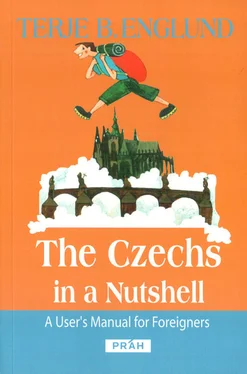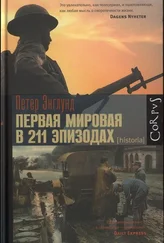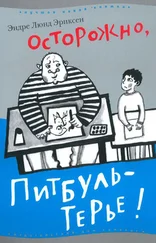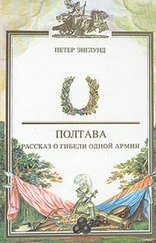Yet in the first half of the 1990s, Klaus’ transformation unquestionably led to economic growth and relatively high employment, which in turn led Klaus, notorious for his arrogance and un-Czech immodesty (see: Egalitarianism), to conclude: “While the other post-communist countries are still laying on the operating table, the Czech Republic is already working out in a fitness centre.”
Unfortunately for the Czechs, Klaus’ reform miracle was a flop. By the spring of 1997, the economy was plummeting, and later that year his days as Prime Minister were terminated as well when businesspeople participating in the privatisation of industry confirmed that they had paid millions of korunas directly to the ODS’ party coffers (see: Pepa from Hong Kong).
A juicy corruptionscandal mixed with economic crisis would have broken the neck of any ordinary politician. But Klaus is not an ordinary politician — he is the ultimate political survivor.
Basically, his tactics are quite like those of the Bolsheviks: he claims personal responsibility for everything that succeeds, such as the tranquil divorce with the Slovaks, while “external forces” (in Klaus’ instance his coalition partners or the Central Bank, in the Bolsheviks’ case evil capitalists) should be blamed for everything that goes wrong. When it’s impossible to blame a debacle on somebody else, such as the embarrassing sponsor scandal in 1997, Klaus is always innocent because “he was not informed by his subordinates”.
When questioned publicly on a touchy issue, Klaus’ standard reaction is to flood his unlucky opponent with accusations of behaving unfairly, using false arguments or being ill-prepared. Especially troublesome opponents are silenced with selected quotations of “highly respected scientists” (preferably Australian) who nobody ever has heard about. Only once, when asked if he found it ethical that his wife was sitting on the board of a large state company when he himself was running the government (see: Balkans), Klaus threatened to smash the impudent journalist’s face.
After the Czech miracle was silently buried and Klaus’ overt hopes of international recognition as a reform wizard evaporated, he swiftly switched his image as an economics expert to one as an ardent guardian of Czech national identity(which he doesn’t bother to define), heavily intoxicated by Europhobia.
The Czechs must not, according to Klaus, dissolve in Europe like “sugar in a cup of coffee”. The thought that Portuguese officers may one day come to command Czech soldiers in a EU army or that — heaven forbid — Germanpolice officers will be allowed to operate in the Czech Republic gives him the shivers, and the Euro is, of course, only a conspiracy invented to strip Europe’s smaller countries of their last piece of national sovereignty. Logically, when the country on May 1, 2004 celebrated its EU membership, Klaus ostentatiously visited the Blaník Mountain — home of the legendary knights that will save the country in its darkest hour. A few days later he added that the EU’s “sneaking federalization” represents a greater threat to the Czechs than the Bolshevik regime.
Incredibly enough it seems that the wily opportunist Klaus once again has found a profitable way to success. The Bolsheviks were strongly attracted by his nationalism, open detest of the supra-national Catholic Church and Europhobia, and only thanks to their support, the Parliament elected him to succeed Václav Havel as president in 2003.
During his first year as head of state, he was manically focusing on two goals: to replace his common image as an unsuccessful politician and honorary chairman of a corruption-tainted party who says peculiar things like “There isn’t any practical difference between clean and dirty money” with the image of a mild and caring president (who will certainly be re-elected in 2008); and second, to oppose, with an almost pathological fervour, everything Václav Havel symbolized.
Klaus uses tame newspaper journalists and the trash TV Novato show he has a younger mistress than his predecessor, he ostentatiously throws out most of the art objects that Havel installed at the Prague Castle, and he sincerely claims that the economic seminaries he organized in the 1980s represent a more significant contribution to the fall of communism than that of Havel and the Charter 77.
So, what kind of politician is Václav Klaus really? Is he a super-shrewd and opportunistic power technocrat, a Czech version of the xenophobic AustrianJörg Haider, or just another of those populist nationalists that post-communist Europe has been full of since 1990?
He is definitely more educated and cultivated than Slovakia’s “terminator” Vladimír Mečiar, and contrary to the ex-Yugoslav Katzenjammer Kids, Franjo Tudjman and Slobodan Miloševic, he must be described as a democrat. But when one compares his political rhetoric in the 1990s with the practical results of his governments, he reminds of that type of married man who brags to all his hospoda pals that he has found himself a young and beautiful mistress (see: Sex), while in reality he is a homosexual.
Actually, there is no need to concoct parabolas. Tomáš Ježek, one of Klaus’ former colleagues from the Academy of Sciences and later minister of privatisation, once presented in Czech media an alleged real-life story that’s even more apt:
During the World Championships in football in Mexico in 1986, Klaus, Ježek and a couple of other academicians were watching the match where Diego Maradona scored with his “magic hand”. Everybody agreed that Maradona was a real creep — except Klaus. To him, Maradona had just done everything in his power to win the match, and the only fault was that he got caught. If that story is true, it may seem that the Czech president regards football much in the same way as he regards politics.
If there exists an ultimate and living proof that the biblical words “a prophet has no honour in his own country” correspond to reality, it has to be Milan Kundera. While people all over the globe praise Kundera as a brilliant novelist who more than once has been close to the Nobel prize, in his mother country he seems to arouse more disapproval and downright anger than respect and admiration.
Of course, the fact that he is an emigrant, even an extremely successful one (see: Egalitarianism), doesn’t exactly guarantee him raging popularity among his ex-countrymen. Some would even say that Kundera, in the eyes of the overtly Prague-fixated Czech intellectuals, has a drawback, since he was born in Moravia. But this goes deeper.
Both the intensity with which many Czechs revel in hating the star novelist and the contempt with which Kundera treats his Czech readers bear all the signs of a relationship that has turned irreparably sour. It’s something like an ex-husband and his former wife soon after an ugly divorce.
It’s hard to say when it started. The writer Ladislav Verecký, for instance, believes the first tensions appeared after the Soviet invasion in 1968. In a heated debate in one literary magazine, Kundera, at that time 39 years old and famous for several collections of poetry, theatre plays and not least his latest novel, The Joke , clashed with another prominent intellectual, Václav Havel, in their evaluation of the Prague Spring's legacy.
In short: while Havelclaimed that the attempts to reform the communist regime were meaningless because communismwas irreformable (history later proved him right), Kundera, who personally engaged himself in the reform movement, felt that such attempts made sense.
According to Verecký, the discord grew stronger after Kundera left Czechoslovakia in 1975 and settled in France. Instead of using his international fame and position as an exiled writer to help promote the Charter 77dissidents in their non-violent fight against the Husák regime, Kundera preferred to concentrate on his career as a writer. Later literary successes proved this choice, at least from a pragmatic point of view, to be a wise decision.
Читать дальше








![Theresa Cheung - The Dream Dictionary from A to Z [Revised edition] - The Ultimate A–Z to Interpret the Secrets of Your Dreams](/books/692092/theresa-cheung-the-dream-dictionary-from-a-to-z-r-thumb.webp)



